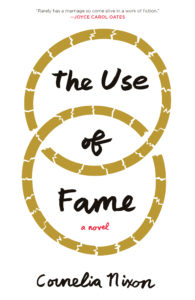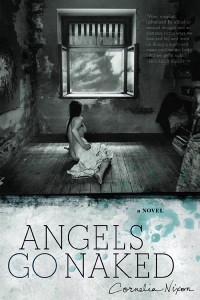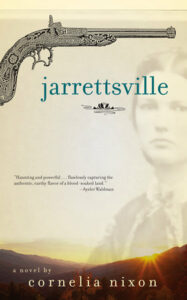Cornelia Nixon
Cornelia Nixon is the author of Angels Go Naked, Now You See It, and Jarrettsville, as well as a book of literary criticism. She has won two O. Henry Awards (one of them the First Prize in 1995), two Pushcart Prizes, a Nelson Algren Prize, and the Carl Sandburg Award for Fiction. She lives half the year in Berkeley, California, and half on an island in Puget Sound, Washington.
Subscribe to our newsletter for news & events from Counterpoint Press.
Books
The Use of Fame
A Novel
"Rarely has a marriage so come alive in a work of fiction. . . So intense, beautifully written, shining with 'felt life,' it is truly gripping—riveting." —Joyce Carol OatesAbigail McCormick and Ray Stark are both poets, married nearly twenty–five years in what has always been a passionate relationship despite deep class differences. Ray is the son of West Virginia coal miners and was abused as a child—but now he is a distinguished poet with a part–time position at Brown. Abby grew up in San Francisco’s posh Pacific Heights and, having abandoned poetry, she spends her energy on a new teaching position at UC Berkeley. Abby’s decision to accept the post sets the stage for Ray to stray, especially as he struggles with a heart condition.
He’s tortured by his affair with the graduate student he’s fallen in love with, but is determined to stay married—he fights to get over Tory for years. A despairing Abby finds solace in her return to riding horses and writing poems, but as she suffers privately, she becomes dependent on sleeping pills and alcohol. Ray’s health worsens—proves nearly fatal—and another cross–country move threatens to push them further apart. Alternating seamlessly between Ray’s and Abby’s perspectives, The Use of Fame is a gripping exploration of how closeness and despair can warp a lover’s perception.
Angels Go Naked
A Novel in Stories
Margaret Rose is a talented but nervous violinist given to bouts of stage fright and unrequited love; Webster Hale is a biologist who, on principle, refuses to kill animals in order to study them. In Angels Go Naked, a novel told in stories, Cornelia Nixon, a writer whose gift is apparent on every page, follows this vexed love story and the collision course they call their life together.Their connection is never in doubt, though Webster is appalled by the urban underbelly of Chicago, which Margy calls home. He refuses to have children because the earth is overrun with humans, and Margy feels compelled to expiate an early abortion by having a live child. Webster's gloomy view of global disaster threatens to triumph in the final story, as their close friend Calvin is dying of AIDS beside a moribund Lake Michigan. Meanwhile, the one child Webster has agreed to conceive appears destined for stillbirth because Margy herself was poisoned as a fetus by misguided medical intervention.
At the end of this sad, funny, moving tale, there may be hope, as life and love prove unexpectedly resilient, even in the twenty–first century.
Jarrettsville
A Novel
A novel of crime and passion in post–Civil War Maryland, based on a true story, from a “wonderfully talented” author (Michiko Kakutani, The New York Times).Winner of the Michael Shaara Prize for Excellence in Civil War Fiction Based on true events from the author’s family history, Jarrettsville begins in 1869. Martha Jane Cairnes has just shot and killed her fiancé, Nicholas McComas, in front of his Union cavalry militia as they were celebrating the anniversary of the Confederate surrender at Appomattox.
To find out why she murdered him, the story steps back to 1865, six days after the surrender, when President Lincoln has just been killed by John Wilkes Booth. Booth belongs to the same Rebel militia as Martha’s hot–headed brother, who has gone missing along with the assassin. Martha is loyal to her brother, but in love with Nicholas McComas, a local hero of the Union cause—and their affair is fraught with echoes of the bloody conflict just ended.
Set six miles below the Mason–Dixon line, in a time when brothers fought on opposing sides and former slave–owners lived next door to abolitionists and freedmen, this is a compelling story rich with passion and tragedy, history and suspense.

Catapult | Counterpoint | Soft Skull
20 Jay Street #704
Brooklyn, NY 11201
646.926.0805 | contact@catapult.co







